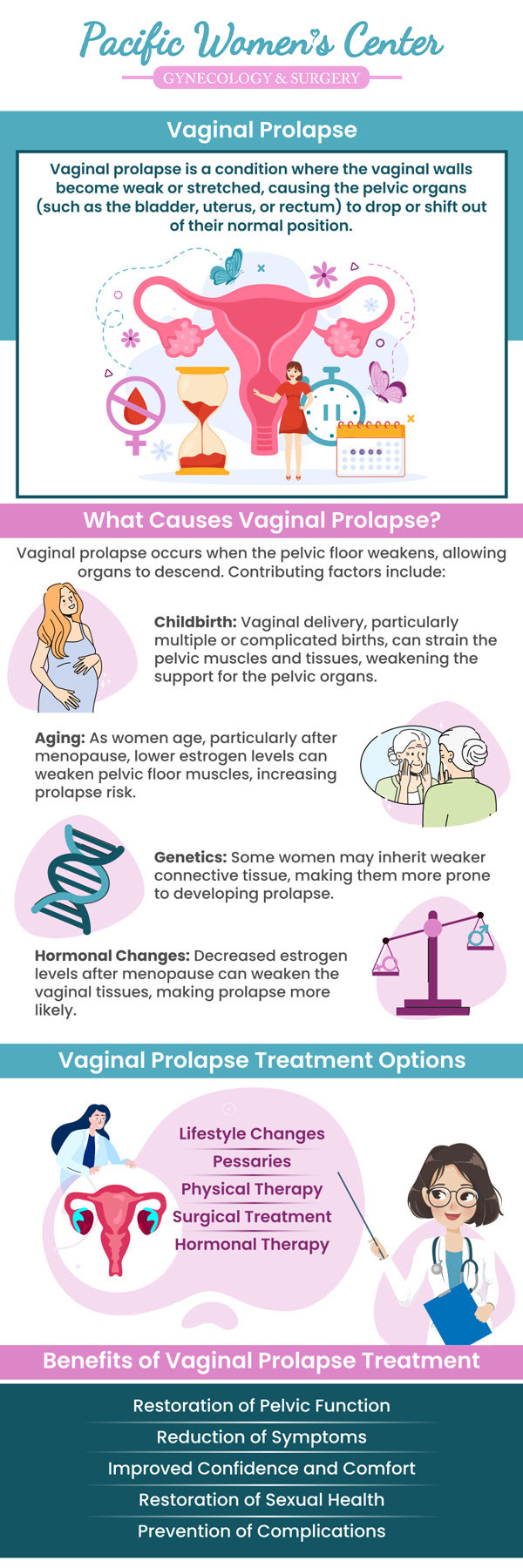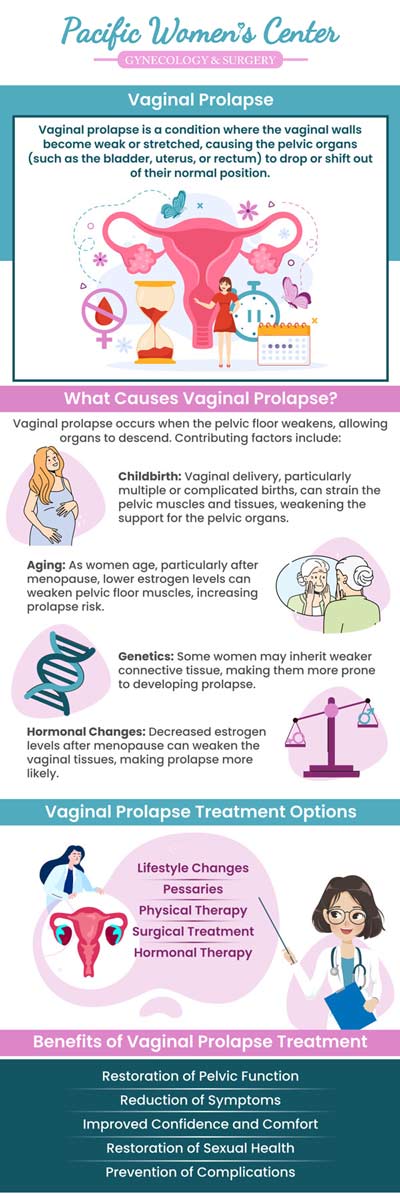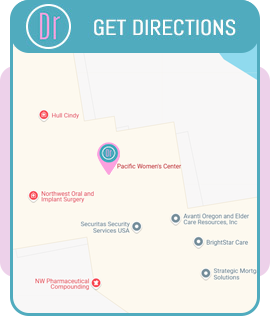Vaginal Prolapse Surgery Specialist in Eugene, OR
Vaginal prolapse surgery is a highly effective treatment for pelvic organ prolapse, restoring function and relieving discomfort. Dr. Richard Beyerlein MD, CPI, FACOG, and Tamara A. Stenshoel, MD, FACOG provide expert care at Pacific Women’s Center in Eugene, OR. For more information, contact us or schedule an appointment online. We are conveniently located at 911 Country Club Rd. Suite 222, Eugene, OR 97401.




Table of Contents:
What does vaginal prolapse look like?
How do you fix a prolapse?
What is the best solution for Vaginal prolapse?
What causes vaginal prolapse?
Prolapse refers to the displacement of a part of the body or internal organ from its normal position, oftentimes downward or outward. This can occur in several different organs and areas, and in some cases, does not exhibit any symptoms. The female reproductive organs can also experience a prolapse, which is typically referred to as vaginal prolapse. Vaginal prolapse is a condition where the vagina slips out of position and is more common in women who have had multiple vaginal deliveries or those who have gone through menopause; it is also more prevalent in women who smoke as well as women who are overweight.
Vaginal prolapse can take on many different forms, depending on the cause of the prolapse and the organs affected. In many cases, a vaginal prolapse is asymptomatic, meaning that the individual does not experience any symptoms from a prolapse. Because of this, many women only find out that they have a vaginal prolapse during a physical checkup or well-woman exam. Vaginal prolapse symptoms can include:
• A feeling of fullness or heaviness
• Pain in the pelvic area
• Lower back pain
• Bulging in the vagina
• Organs slipping out of the vagina
• Leakage of urine (urinary incontinence)
• Bladder infections
• Difficulty having a bowel movement
• Problems with sexual intercourse
• Problems inserting tampons
There are many ways women can fix a vaginal prolapse; most of the methods involve lifestyle modifications. One thing women can do to ameliorate their condition is to change their activities to prevent stress on the vaginal walls, such as avoiding heavy lifting and/or straining. This will reduce the stress on the pelvic floor muscles and may help to improve vaginal prolapse or prevent it from getting worse. Another lifestyle modification used in the treatment of vaginal prolapse is Kegel exercises to strengthen the pelvic floor muscles. If the prolapse is caused by a hormonal imbalance, which is common after menopause, it may be treated with hormone replacement therapy for estrogen. In moderate to severe cases of vaginal prolapse, surgery may be the only option.
The best solution for vaginal prolapse can vary depending on the cause, severity, and chronicity of the prolapse. In some cases, the condition may be monitored by a healthcare provider to make sure it does not progress. However, treatment is often needed to alleviate symptomatic prolapses, which can range from noninvasive therapies to surgical procedures. When developing a treatment plan, the doctor will take into consideration several different factors, including:
• The patient’s general health
• If any serious medical conditions are present
• The patient’s age
• The severity of the prolapse
• plans for procreation
• Sexual health, including active sex life
Non-surgical treatment options can include:
• Exercise
• Vaginal pessary
Surgical options include:
• Vaginal vault suspension
• Sacrocolpopexy
• Colpocleisis
Common causes of vaginal prolapse include:
Childbirth: Vaginal delivery raises the risk of prolapse, as well as having multiple children or babies larger than nine pounds.
Surgery: A prolapse can result from procedures like hysterectomies or radiation treatment.
Menopause: Low estrogen levels are linked with an increase in the risk for vaginal prolapse, which is common after menopause.
Aging: Vaginal prolapse risk increases with age.
Extreme Physical Activity or Lifting Heavy Objects: Physical strain can also weaken the pelvic muscles, which increases the risk of the reproductive organs prolapsing.
Genetic or Hereditary Factors: Weak pelvic support systems could be passed down genetically.
Call us today to book an appointment with our vaginal prolapse surgery specialist, or visit our clinic conveniently located at 911 Country Club Rd. Suite 222, Eugene, OR 97401. We look forward to serving you! We serve patients from Eugene OR, Creswell OR, Cottage Grove OR, Springfield OR, Coburg OR, Lowell OR, and Junction City OR.

ADDITIONAL SERVICES YOU MAY NEED
❱ Abdominal Hysterectomy
❱ Bladder Lift Surgeon Q&A
❱ Cervical Cone Biopsy
❱ Colposcopy
❱ Endometrial Ablation
❱ Endometrial Biopsy
❱ Female Sexual Dysfunction
❱ Gynecological Surgery
❱ Gynecology
❱ Hormone Therapy
❱ Vaginal Hysterectomy
❱ Endometriosis Diagnosis & Care



